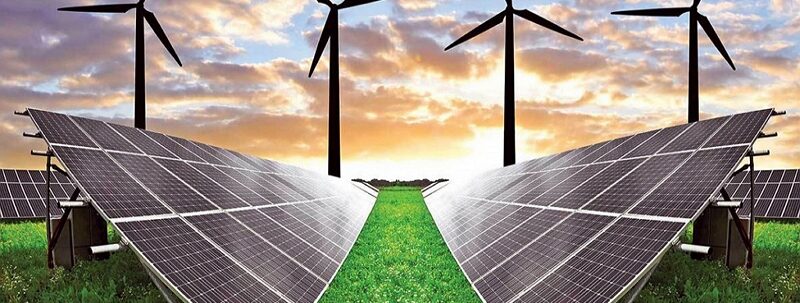Both the supply and consumption of energy in the European Union have changed due to the war in Ukraine.
Geopolitical reorientations and global energy tensions have led to the practically unanimous response of disengaging from fossil fuels as soon as possible by the Member States of the European Union.
According to the new report by the Center for Research on Energy and Clean Air (CREA) and Ember, the ambition of climate policies to accelerate the energy transition has grown in the face of the war in Ukraine, unaffordable and volatile energy prices in international markets.
Germany, as well as Italy and the Netherlands, have increased their solar energy targets as they are the most energy dependent countries of Russia. For its part, France has improved subsidies for insulation in buildings and other countries have promoted the installation of heat pumps and the electrification of transport. Over the last two years a total of 19 European governments have announced plans to accelerate decarbonization.
Which I personally think that are good news for the planet.
Faced with the turbulence in the energy markets and the new geopolitical situation, Europe has responded by reinforcing its path towards the decarbonization of its economy. After analyzing the main National Energy and Climate Plans, published in 2019, and the new objectives announced, the report highlights that 63% of electricity will come from renewable energies in 2030 compared to the 55% set in 2019.
Likewise, the electricity generation with fossil fuels contained in the 2019 strategies was 867 TWh by the end of this decade. Now, this figure has been reduced to 595 TWh, 31% less than expected. This is mainly because, between 2020 and 2022, several countries (Bulgaria, Croatia, Czechia, Poland, Romania and Slovenia) announced official coal phase-out dates and Germany lowered its cut-off date from 2038 to 2030.
The urgency is caused by the oil and gas pipelines coming from Russia. Germany, leader and European industrial engine, has also taken over imports of Russian fossil fuels for the last thirty years. For this reason, the German country accelerated its energy plan by increasing the share of renewable energy from 65% to 80% thanks to the incorporation of 110 GW of onshore wind power and 30 GW of offshore wind power by 2030, to which another 200 GW are added. new photovoltaic solar energy for that date.
Italy put into operation its first offshore wind farm, and the first in the Mediterranean Sea, at the end of April and is debating in the Senate both the approval of an offshore wind target of 5 GW by 2030 and increasing renewable electricity generation from 60 % to 70%. The Netherlands announced 21 GW of offshore wind power and France reported in February the installation of 77 GW of wind power and 100 GW of photovoltaic solar. “The EU has launched the energy transition and governments are serious about phasing out expensive fossil fuels,” says Pawel Czyzak, Senior Energy & Climate Data Analyst at Ember. “There is consensus that accelerating wind and solar power can help the EU avoid multiple crises,” he insists.
Beyond generating electricity, it is necessary to know how to manage it and consume it responsibly. For this reason, France will reform the “MaPrimeRenov” subsidy system to encourage households to switch to renewable heating systems through a €1,000 increase in the subsidy for “virtuous residential heating” and encourages public buildings to reduce their temperatures 1 °C to save energy.
In this respect, the United Kingdom takes the cake. Thanks to its new strategy, it will advance in energy efficiency by installing 600,000 heat pumps per year until 2028 and establishes the goal that all buildings have renewable heating by 2050, with incentives and financial aid. “Europe now recognizes that fossil fuels equal volatility. The current energy landscape is unprecedented, but a leap in ambition to reduce dependence on fossil fuels is putting countries on a path to greater security,” says Erika. Uusivuori, CREA analyst.
The authors of the report warn of malpractice by explicitly pointing to Spain. And it is that together with Italy, France and Germany they have spent approximately 20,000 million euros since September 2021 subsidizing the prices of electricity, fossil gas, gasoline and diesel.
They claim that the price cap measures introduced may ease the burden on citizens with lower incomes, but they also have drawbacks, such as hampering progress in energy efficiency and consumption reduction and may negatively affect security of supply. Therefore, market interventions must prioritize solutions that have positive long-term effects (for example, subsidizing heat pumps), that are socially responsible, and that reduce, rather than deepen, social inequalities.



